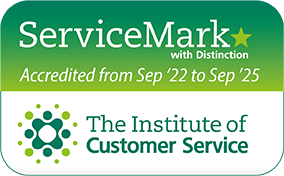We've increased the maximum amount you can pay annually into two of our accounts: Existing Members account (EMA) and Welcome to Newbury.
Setting aside money for unexpected emergencies is a part of life. Mortgage or rent payments, food and utilities, a failed MOT, or an unexpected vet bill can all effect how much money you can afford to save each month.
If you have been thinking about opening a savings account, but you're not sure where to start, here are four points to consider:
Set yourself a savings goal
Those who set themselves a target, or have something specific they are saving for, usually save £550 more a year than those who don’t, claim the Government’s savings arm NS&I.
Defining your savings goals will help you understand your savings needs and help you reach your goals more efficiently. There are a range of savings accounts on the market, such as easy access accounts and ISAs, each of which has their own features and suitability. And, while setting a goal isn’t strictly necessary, it may help spur you on!
Shop around but don’t forget, loyalty can pay off too
Treat savings accounts in the same way you would your car insurance or broadband provider – look at a range of savings account rates and compare them. By doing so, you can establish which account will give you a better return. Visiting comparison websites such as Which? and Money Saving Expert are a good starting point for anyone looking for an account tailored to their needs.
Some banks and building societies also reward customers’ loyalty if they decide to open a savings account with them. Some offer their higher interest rates on ‘linked accounts’ or ‘member accounts’, which can only be opened if you are an existing customer.
If the rate seems too good to be true, it may be an introductory rate...
Introductory account rates are usually higher, to encourage new customers to open an account. Unfortunately, these rates may only last for a set amount of time - typically 12 months. After this period, the rate may well drop.
An ‘introductory rate term’ should never be hidden from you. With this in mind, always thoroughly check the account’s terms and conditions before you sign any agreement.
Tip: set up a reminder on your calendar or phone to review your savings account when the introductory term is about to end.
The longer you commit your money to a savings account, the better the rate of interest
Shorter term, or ‘easy-access’ savings accounts usually provide instant access to your money and allow frequent withdrawals, which means they tend to have lower interest rates.
Alternatively if you open a ‘long-term’ savings account, with restrictions on withdrawals, the interest rates can be higher. As a rule of thumb, interest rates increase the longer you ‘tie-up’ your money. Some savings accounts allow only limited withdrawals or no withdrawals at all within an agreed time period, which makes them an unsuitable choice of account if you are saving for an emergency fund or a short-term goal.
If you are unsure about which accounts are suitable for your savings plans, visit your local Newbury Building Society branch and speak to a qualified savings adviser. Alternatively, click here to view our savings products.






